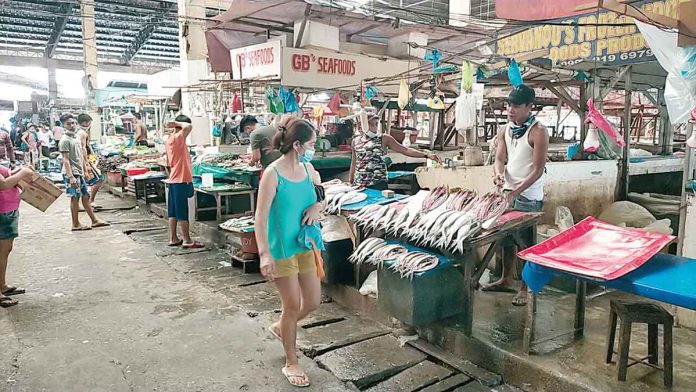
ILOILO City – Amid the rising prices of commodities, including agricultural products like hogs, local government units (LGUs) in Region 6 are being urged to reactive their respective local price coordinating councils (LPCC).
Some LGUs have inactive price councils, lamented Executive Regional Director Remelyn Recoter of the Department of Agriculture (DA) Region 6.
“Kinanglan gid ta gid i-reactivate at this moment. Grabe ang pagsaka sang presyo sang mga commodities, not only agriculture products,” Recoter said.
An LPCC is composed of a chairman (local chief executive), vice chairman (Department of Trade and Industry provincial director or representative) and members who are representatives from various government agencies including the DA, and sectoral representatives.
According to Recoter, LPCCS monitor and could forestall exorbitant and unreasonable price increases in essential prime commodities.
As part of their power and functions, LPCCs coordinate and rationalize programs to stabilize prices and supply of member agencies in the respective provinces, cities and municipalities, the director added.
They also recommend to the National Price Coordinating Council or to implementing agencies suggested retail prices (SRP) and/or price ceilings for certain basic necessities and/or prime commodities in their respective areas.
Recoter said LPCCs also conduct in-depth analysis on the causes of price fluctuations and recommend actions to correct unwarranted price increases and supply shortages.
The governor or local chief executive can even issue an executive order relative to marketing and pricing issues in their respective areas, she added.
As to hog prices that raisers recently complained of being too low, Recoter said it was suggested during Monday’s dialogue between traders and hog raisers that the farm gate price of the live weight should be between P140 to P150 per kilo, citing the high cost of production.
The regional DA office, during the dialogue, presented the structure of production cost which revealed that traders rake in more profit than hog raisers.
“It was not really an agreement, just a request to consider also the concern of the swine raisers. We presented the cost structure ng swine. Nakita man nila nga in the value-chain, mas damu ang profits sang traders,” said Recoter.
It was also suggested that the middlemen like “spotters” between hog raisers and traders should be minimized to avoid additional cost.
Traders also presented their side; they said that, among others factors, these in-between persons being paid by them cost them additional expenses.
“Kon wala inang layer like spotters or persons in between hog raisers and traders, ginansya pa ina tani sang farmer,” said Recoter.
She urged hog raisers to organize themselves so they can help one other sell their hogs directly to traders./PN




